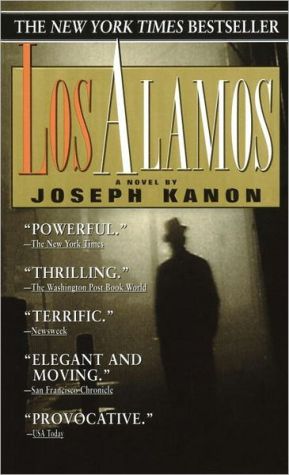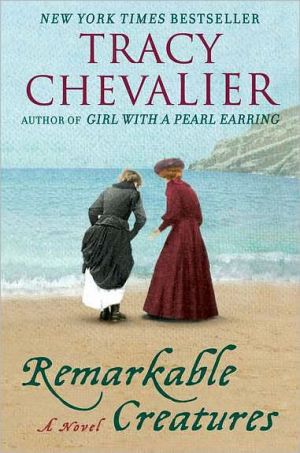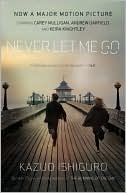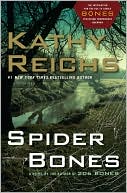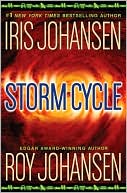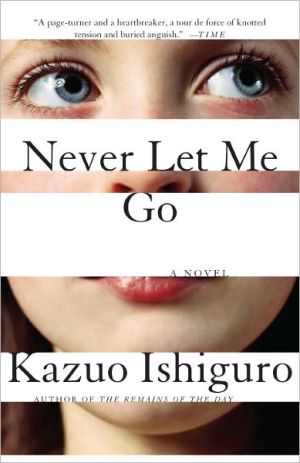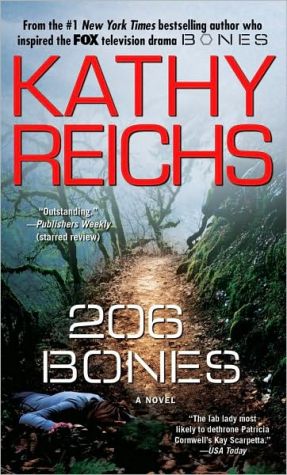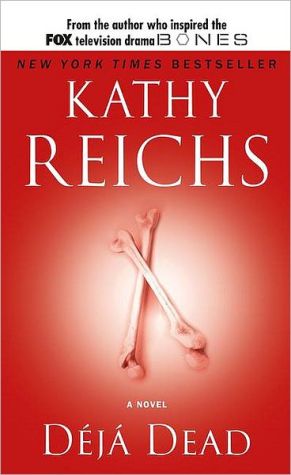Los Alamos
In a dusty, remote community of secretly constructed buildings and awesome possibility, the world's most brilliant minds have come together. Their mission: to split an atom and end a war. But among those who have come to Robert Oppenheimer's "enchanted campus" of foreign-born scientists, baffled guards, and restless wives is a simple man, an unraveler of human secrets—a man in search of a killer.\ It is the spring of 1945. And Michael Connolly has been sent to Los Alamos to investigate the...
Search in google:
In a dusty, remote community of secretly constructed buildings and awesome possibility, the world's most brilliant minds have come together. Their mission: to split an atom and end a war. But among those who have come to Robert Oppenheimer's "enchanted campus" of foreign-born scientists, baffled guards, and restless wives is a simple man, an unraveler of human secrets—a man in search of a killer.It is the spring of 1945. And Michael Connolly has been sent to Los Alamos to investigate the murder of a security officer on the Manhattan Project. But amid the glimmering cocktail parties and the staggering genius, Connolly will find more than he bargained for. Sleeping in a dead man's bed and making love to another man's wife, Connolly has entered the moral no-man's-land of Los Alamos. For in this place of discovery and secrecy, hope and horror, Connolly is plunged into a shadowy war with a killer—as the world is about to be changed forever....William GeorgiadesThe story of the forces at work behind this first novel could itself be the skeleton for a fictional account of the publishing world. A former trade division chief at Houghton Mifflin (Joseph Kanon) gives up his powerful job and pounds out a manuscript in under six months. His high-powered agent (Amanda "Binky" Urban at ICM) shops it around anonymously. The dashing editor-in-chief of the brand new publishing house Broadway Books, John Sterling, who until two years ago was chief editor at Houghton Mifflin under Kanon, reads the manuscript and, in the midst of the experience, guesses that the mysterious author is his old boss. He calls up Binky, with whom he used to work at ICM, and before long the North American Rights for "Los Alamos" are bought for $500,000, and the novel is slated to be the first fiction title of the publishing house. A touch more intrigue, a dash of romance (those names!) and perhaps a historical setting and you have all the ingredients for a fine little potboiler. Instead, Kanon has produced a sturdy and capable thriller, set in the New Mexico desert in 1945, where work on the first atomic bomb is nearing completion. He opens with standard brio -- a widow comes across a corpse, the victim of an apparent sex crime. An investigator, Michael Connolly (a nod toward the popular author?), arrives on the scene. Sex, more murder, intrigue, red herrings and national security issues ensue. The mystery is solved amid great violence -- followed, of course, by even greater violence. Kanon's Manhattan Project setting is rendered with a good deal of authenticity -- it reads with the authority of conspicuous research -- and this allows for major historical figures to take key fictional roles. The chain-smoking Robert Oppenheimer himself, a suspect and eventual confidante of Connolly's, sets the stage when he tells the investigator, "Officially I don't exist. None of us do. You're among ghosts now." The haunting air of paranoia, of a race to reach total world destruction, of an entire city living in secret directed toward some great and terrible end, is evoked so subtly that one forgets at times that this is all background to a routine thriller where a woman's hair will "sway lazily" and a body will burn "curling up like a secret message in an ashtray." The very end of the book, with the mystery already tidily taken care of, is also the strongest passage, as our hero stands in the New Mexico desert watching the first test explosion of the nuclear bomb. After it goes off, "He could see the faint glimmer of dawn, shy behind the mountain, its old wonder reduced to background lighting." It would be unfair to suggest that the dawn might be a metaphor for genuine writers cowering from the power of a publishing executive who knocks off a commercially viable literary commodity in a few months. After all, publishing is not nuclear power, and writing isn't murder. -- Salon
A Mrs. Rosa Ortiz found the body. She was used to getting up with the sun, but this morning she was early, too early even for mass, so she took the long way, cutting through the park along the Alameda, where mist was still rising from the old riverbed. If she had been hurrying she might have missed it, but as it happened she was walking slowly, enjoying the first light. She had not heard it rain during the night, so the moisture on the trees surprised her, and she stopped once to look at the shine on the leaves. The sky was already a sharp cloudless blue, promising heat. It was when she glanced down from the sky, temporarily blinded, that she saw the shoes.\ The legs were sticking out from the bushes, and her first impulse was to hurry away and let him sleep it off. Pobrecito, too drunk to come in out of the rain, she thought as she passed. But it was a disgrace all the same, sleeping by the Alameda, like the Indians hunched over in the plaza, pretending to sell blankets. Then she stopped and turned around. The legs were wrong, twisted one on top of the other. No one could sleep like that. She moved closer to the bush, slowly pushed a branch aside, then gasped. In that second she took in the head, splotched red from the blood, with its mouth fixed open, still trying to draw in air. It was the only recognizable feature left in his face. But what shocked her was his body. The trousers had been pulled down below the knees, exposing his genitals. Why? Mrs. Ortiz had not seen a man since her husband died and never one in public. It seemed incomprehensible to her, this exposure of flesh. She clutched her shawl and, in a gesture centuries old, crossed herself. This was what evil felt like; you could feel it around you, taste it in the air. The ground itself might be soaked with blood, spreading under her. Dizzy, she grabbed the bush to steady herself, but the branch shook its drops onto the body, spattering rain on his private parts, and she backed away. She took little gulps of air and looked around her, expecting to be attacked, as if the scene before her had just happened. But there was no one. The noise in her head was her own breathing. The Alameda itself was quiet and fresh with morning. The world had not noticed.\ She hurried toward the cathedral, her mind a jumble. She knew she should tell the police, but her English was poor and what would they think? The man was Anglo, she could tell that from her shameful glance at his body, and that might mean even more trouble. Perhaps it was best to say nothing—no one had seen her, after all. Someone else was bound to find him and go to the police. But now she kept seeing the body in front of her, naked, exposed. She had not even had the decency to cover him. And of course God had seen her. So she decided, as so often in the past, to talk to the priest.\ But Father Bernardo was already preparing for mass when she arrived and she couldn't interrupt that, so she knelt with the others and waited. The congregation was small, the usual group of old women draped in shawls, atoning for blameless lives. Her neighbors must have felt that she was especially devout that morning, for she prayed noisily and sometimes even seemed to sway. Surrounded by candles, the familiar words, the solid feel of her beads, she began to feel calmer, but the feeling of disquiet would not go away. She had done nothing, but now somehow she had the ache of a guilty secret. Why had she looked at him so long? This was what bothered her most. She should have turned her eyes away; there was nothing so remarkable about a man, not even one without a foreskin. But she had never seen this before, and it troubled her that in all that scene of horror, this was what she had noticed. No one would have to know that, certainly not Father Bernardo. She would not have to describe the body; it would be enough to say she saw a dead man. If she said anything at all.\ So it was another hour before Mrs. Ortiz approached the priest with her story and another hour after that before he telephoned the police, in English, and a car was dispatched. By that time the dew had dried along the Alameda and the day was hot.\ Sergeant O'Neill had never seen a corpse before. There had been murders in Santa Fe, mostly Mexicans with knives solving domestic arguments, but he had never been assigned one. The last real murder, during a jewel robbery, had happened while he was fishing in the mountains. So the man in the park was his first official corpse, and it made him sick.\ "You all right, Tom?" Chief Holliday asked him while the photographers snapped pictures. Inevitably, Holliday was "Doc."\ O'Neill nodded, embarrassed. "He's a mess, all right. Where's Doc Ritter, anyway? Don't you think we should cover him up?"\ Chief Holliday was crouched near the body, turning the head with a stick he'd picked up.\ "Don't be so squeamish—he doesn't mind. Christ, look at this." The back of the man's head was crusted over with blood and pulp. "Here's where he got it. The face looks like decoration—maybe a few good kicks, just for the hell of it."\ O'Neill was writing on his pad. "Weapon."\ "A blunt instrument. What do you think?"\ "Blunt instrument."\ "Hammer, wrench, could have been anything. Anyway, it cracked his skull. Funny, though, there's not much blood around. You'd think to look at him he wouldn't have any left."\ "It rained last night. Maybe it washed away."\ "Maybe. No ID. Boys find anything further along?"\ "Nothing. They've been checking up and down the Alameda. Broken bushes here where we found him, but that's it. Can't you at least shut his mouth?"\ Holliday looked up and grinned. "Not now I can't. Take it easy, O'Neill. Once the doc gets here, we'll haul him off. You get used to it."\ "Yeah."\ "No wallet, I suppose? Keys? Anything?"\ "Not a thing."\ "Great. John Doe for sure."\ "Doc—"\ "Yeah?" Holliday said distractedly, turning the head back gently.\ "What about the pants?"\ "What about them?"\ "I mean, what the hell is a guy doing in the park at night with his pants down?"\ "What would anybody be doing? Taking a leak, probably."\ "No. You don't pull your pants down below your knees to take a leak."\ Holliday looked at him, amused. "You'll make detective yet, Tommy. Sounds right to me."\ "Well, then—"\ "Look, a guy's out at night in the park bushes. He's got his pants down and his head kicked in. What the hell do you think happened?"\ "You mean like that guy in Albuquerque? We never had nothing like that here."\ "We do now. Pretty sight, isn't it?" Holliday said, gesturing toward the man's groin. "Looks like he's been kicked there too." He moved the testicles to one side with the stick. "A little discolored, don't you think?"\ "I wouldn't know."\ "Well, what color are yours? Come to think of it, maybe they're blue too. Anyway, they shouldn't look like this. He's circumcised, by the way."\ "I noticed."\ "I mean for the report."\ "Oh," O'Neill said, jotting it down. "Time of death?"\ "We'd better let the doc tell us that. You got rigor, but I don't know what effect the rain would have on that. Cold too, last night."\ "I can't remember that far back," O'Neill said, wiping his forehead in the unexpected heat.\ "This is interesting," Holliday said, poking tentatively at the man's mouth. "He's got a full plate here. No teeth at all. Kinda young for false teeth."\ O'Neill shrugged.\ "Well, now at least we got a motive. Probably isn't used to them and bit down too hard on the guy's dick."\ "Jesus, Doc."\ By the time the coroner arrived, O'Neill had already completed the area search. "Shame about the rain. I'll get Fred to look downstream just in case anything got thrown in the river. Like his wallet."\ "Yeah, if God wants to throw you a bone this week," Holliday said. "Don't figure on the wallet. Keys, though. Funny, taking his keys."\ "What have you got here, Ben?" Doc Ritter said, using Holliday's real name. "Been a long time since I've been called out on a murder."\ "Well, you tell me. Careful of the clothes, though—I'm still hoping to get some prints."\ "After the rain?"\ "Well, I can hope. We sure don't have much else. John Doe with his head smashed in and his pants down."\ The coroner looked at him.\ "Yeah, I know. Sounds like that case down in Albuquerque. I guess the papers will be all over us, but let's try to keep them out of it until I can talk to the boys down there. We could use a head start."\ "You've got the whole police force out on the Alameda in broad daylight and you're trying to keep this quiet? You've got yourself some news here, Ben, is what you've got."\ "I don't know what I've got, except a corpse. Take a look at his teeth for me, will you? He's got a plate but not like one I've seen around here before. Maybe he's from back east."\ "Who is he?"\ "No idea. Clothes don't tell me anything. Civilian, but he could be on leave. Maybe a tourist."\ "Yeah, welcome to Santa Fe, where the Old World meets the New. Not too many in April, though, usually."\ "Not since the war, that's for sure. I'll check the hotels, though, just in case. It'll give them something to do."\ "Maybe he's from the Hill."\ Holliday sighed. "Don't say it."\ "But he may be."\ Holliday nodded. "Then we'll have the whole fucking army breathing down our necks."\ "Better call post security anyhow. Maybe they've got somebody missing."\ "Well, I'll tell you. Maybe post security should be checking with us, instead of telling us how top secret they are and what a bunch of assholes we are. Besides, if they've got somebody missing, we'll hear about it—not so easy to get lost up there, I wouldn't think. Place is a fort. Meanwhile, all I've got here is a John Doe with a cracked skull. A month ago some queer down in Albuquerque gets knifed and it makes all the papers, and now I've got a boy looks like he was up to the same fun and games. So before I take on the U.S. Army and all the crap we usually have to take from our secret project friends, I think I'll have a little talk with Albuquerque and see if they'd like to take this off our hands."\ "Suit yourself. They find the guy who did it in Albuquerque?"\ "Not yet. But maybe they haven't been looking very hard."\ "So it might—"\ "I don't know. But I'm going to check it out before I tell anybody on the Hill we've got a dead pansy and by the way are they looking for one. I can hear them yelling now. Just in case, though, you'd better do a good job on the autopsy. Don't want your cleaver work making us look bad up there."\ Ritter laughed. "Anything else?"\ "Yeah, be sure to check for any anal penetration."\ O'Neill, who had been standing quietly at his side, looked up. "What do you mean?"\ Holliday laughed. "Tommy, you need to have a talk with your dad someday so he can explain things." Then he looked down at the body, still twisted and pale and dead. "Poor son of a bitch. I wonder what he did to deserve this."
\ William GeorgiadesThe story of the forces at work behind this first novel could itself be the skeleton for a fictional account of the publishing world. A former trade division chief at Houghton Mifflin (Joseph Kanon) gives up his powerful job and pounds out a manuscript in under six months. His high-powered agent (Amanda "Binky" Urban at ICM) shops it around anonymously. The dashing editor-in-chief of the brand new publishing house Broadway Books, John Sterling, who until two years ago was chief editor at Houghton Mifflin under Kanon, reads the manuscript and, in the midst of the experience, guesses that the mysterious author is his old boss. He calls up Binky, with whom he used to work at ICM, and before long the North American Rights for "Los Alamos" are bought for $500,000, and the novel is slated to be the first fiction title of the publishing house. A touch more intrigue, a dash of romance (those names!) and perhaps a historical setting and you have all the ingredients for a fine little potboiler.\ Instead, Kanon has produced a sturdy and capable thriller, set in the New Mexico desert in 1945, where work on the first atomic bomb is nearing completion. He opens with standard brio -- a widow comes across a corpse, the victim of an apparent sex crime. An investigator, Michael Connolly (a nod toward the popular author?), arrives on the scene. Sex, more murder, intrigue, red herrings and national security issues ensue. The mystery is solved amid great violence -- followed, of course, by even greater violence.\ Kanon's Manhattan Project setting is rendered with a good deal of authenticity -- it reads with the authority of conspicuous research -- and this allows for major historical figures to take key fictional roles. The chain-smoking Robert Oppenheimer himself, a suspect and eventual confidante of Connolly's, sets the stage when he tells the investigator, "Officially I don't exist. None of us do. You're among ghosts now." The haunting air of paranoia, of a race to reach total world destruction, of an entire city living in secret directed toward some great and terrible end, is evoked so subtly that one forgets at times that this is all background to a routine thriller where a woman's hair will "sway lazily" and a body will burn "curling up like a secret message in an ashtray."\ The very end of the book, with the mystery already tidily taken care of, is also the strongest passage, as our hero stands in the New Mexico desert watching the first test explosion of the nuclear bomb. After it goes off, "He could see the faint glimmer of dawn, shy behind the mountain, its old wonder reduced to background lighting." It would be unfair to suggest that the dawn might be a metaphor for genuine writers cowering from the power of a publishing executive who knocks off a commercially viable literary commodity in a few months. After all, publishing is not nuclear power, and writing isn't murder. -- Salon\ \ \ \ \ \ Publishers Weekly - Publisher's Weekly\ It's always pleasing to publishing folk when one of their own turns a hand successfully to writing; and there will be general rejoicing that Kanon, former head of trade publishing at Houghton Mifflin, has made a smashing debut as a novelist in what is also Broadway's fictional launch. Los Alamos is the work of a natural writer, an intricately plotted, highly atmospheric and stunningly authentic tale set on the remote New Mexico hilltop near Santa Fe where the scientists of the Manhattan Project are developing the atom bomb during the closing months of WWII. It begins with the discovery of the body of Karl Bruner, a security man on "The Hill," apparently the victim of a homosexual encounter that went badly wrong in a Santa Fe park. Enter Michael Connolly, an Army Intelligence officer called in to see whether Bruner's death involved any security risk in the top-secret installation. He soon becomes involved in the intense, hermetic life of this strange place, populated by earnest, dedicated scientists who have little sense of the dread potential of their planned weapon, other than the fact that it could hasten the end of the war. He also falls for Emma Pawlowski, the dashing, witty and sometimes enigmatic English wife of one of the migr scientists; and it is a high tribute to Kanon that their romance, which seems at first a diversion, is as appealing and intensely involving as his thriller plot. In any case, nothing is wasted here, and Emma soon plays a highly significant part in Connolly's bold and risky scheme to unmask what seems to be a high-level case of espionage, involving one of the most trusted scientists close to project director J. Robert Oppenheimer himself. Kanon's use of Oppenheimer, General Leslie Groves and some of the other real-life people in the book, is exemplary; he has created characters who are both true to their actual selves and three-dimensional actors in a convincing fiction. His villains are profoundly human and horribly plausible; the real life-and-death issues of that time and place are thoughtfully set forth; and the book is crammed with the kind of utterly believable details it would seem impossible for someone who was only a child in 1945 to have created. There is a tingling climax (yes, you do get to see the first bomb go off) and an ending full of the most poignant irony for anyone who remembers what happened later to Oppenheimer. This is a thinking person's thriller that makes wonderful use of, but never cheapens, one of history's more extraordinary moments.\ \ \ Library JournalKanon, a former publishing executive, has penned an extraordinarily tight first novel set in Los Alamos during the waning months of World War II. When a Manhattan Project security officer is found murdered, civilian intelligence liaison Michael Connolly is called in to investigate. Reporting directly to project honcho J. Robert Oppenheimer, Connolly wades through a sea of white-coated brainiacs intent on perfecting "the gadget," local yokels who have no idea what the scientists "up on the hill" are up to, and paranoid army officers who obsess over the loyalty of the project's key personnel, most of whom are expatriated Europeans. Kanon seamlessly interweaves historical figures and events into an exciting, plausible scenario. Two caveats: some readers may find that the action builds a bit too slowly; additionally, the romance between Connolly and a scientist's wife seems contrived, at least in the first half of the novel. Still, all fiction collections should have a copy of this.-Mark Annichiarico, "Library Journal"\ \ \ \ \ John EllisRead this book...it's a love story inside a murder mystery inside perhaps the most significant story of the twentieth century: the making of the atomic bomb...a magnificent work of fiction...a stunning achievement. -- The Boston Globe\ \
